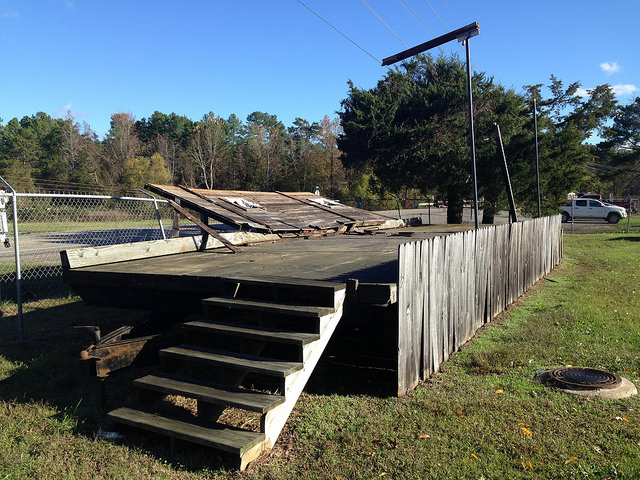High winds, heavy rains do minor damage, but will have little impact on harvest
By Ryan McGeeney
U of A System Division of Agriculture
Nov. 19, 2015
Fast Facts:
- Rainfall set single-day records
- Most harvest complete
- Winter wheat planting delayed for many
(492 words)
(Newsrooms: with art at www.flickr.com/photos/uacescomm/22529576603 and www.flickr.com/photos/uacescomm/23136814182)
LITTLE ROCK — Heavy, record-setting rains saturated fields and caused creeks to swell in Arkansas this week, delaying winter wheat planting but coming too late in the season to damage most fall-harvested crops, Cooperative Extension Service personnel said.
Even given the delayed planting on many crops across the state, due to an already-wet year, all but the last soybeans had been harvested within the first two weeks of November. For much of the state’s winter wheat crop, the delay from Tuesday’s rain was just another in a long string of postponements, said Jason Kelley, extension wheat and feed grains agronomist for the University of Arkansas System Division of Agriculture.

“Ideally, you like to get that wheat planted in October or early November,” Kelley said. “Rain this week might stop planting for the rest of 2015. Once we get into December, yield potential goes down and most growers won't plant that late.”
According to a crop progress and condition report published Nov. 16 by the U.S. Department of Agriculture’s National Agricultural Statistics Service, about 81 percent of the state’s projected winter wheat had been planted as of Nov. 15, well below the five-year average of 90 percent for the same point in the season.
By Tuesday’s end, total rainfall throughout the state ranged from 1.3 inches recorded in Monticello to more than 4 inches in central Arkansas, with 4.38 inches registering with the gauge in Russellville, according to the National Weather Service. Single-day rainfall records were reported at North Little Rock, 3.09 inches; Hot Springs, 1.89 inches; Russellville, 2.3 inches; and Batesville, 3.63 inches.
Pope County Extension Staff Chair Phil Sims said although he’d received no reports of structural or equipment damage Wednesday, saturated conditions would delay any remaining soybean harvesting activities until a significant ground freeze.
“When you get to the point where the ground is this super-saturated, it takes a lot of time to dry the fields out before combines can get back on the soil,” Sims said. He said that as long as soybean seed quality and moisture are good, they can still be successfully harvested after a freeze.
“What wheat has been planted will be all that’s planted,” Sims said. “We were planting wheat until this last rain event, hoping this rain wouldn’t be as bad as it was. But I think we can pretty much put a fork in it now, as far as wheat planting goes.”
Strong winds in Perry County damaged some fences and other minor structures, but apparently left farming operations intact, said Perry County agricultural agent Jesse Bocksnick.
“The worst part I’ve seen so far was right here on the edge of town, at the fairgrounds,” Bocksnick said. “The damage hasn’t been significant that we can see so far. A few trees down on fences, but we got pretty lucky.”
For more information about managing for disasters, contact your county extension office or visit http://www.uaex.uada.edu/environment-nature/disaster/default.aspx.
Pursuant to 7 CFR § 15.3, the University of Arkansas System Division of Agriculture offers all its Extension and Research programs and services (including employment) without regard to race, color, sex, national origin, religion, age, disability, marital or veteran status, genetic information, sexual preference, pregnancy or any other legally protected status, and is an equal opportunity institution.
# # #
Media Contact: Mary Hightower
Dir. of Communication Services
U of A Division of Agriculture
Cooperative Extension Service
(501) 671-2126
mhightower@uada.edu
Related Links